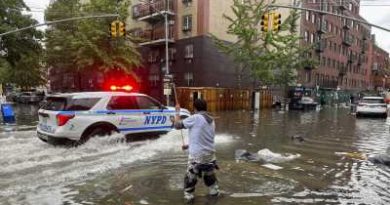Order of Australia honours are a shameful embarrassment
The Order of Australia is a reflection of where this country is – and that should make us embarrassed and ashamed. It’s not just that there aren’t enough women and no clear indication of whether we recognise First Nations people, points clearly made by Jacqueline Maley and Nigel Gladstone in the Good Weekend. It’s not just that one of Australia’s top homophobes and former tennis player Margaret Court has been given our highest honour. It’s not just that men’s rights “advocate” Bettina Arndt was awarded one last year – and got to keep it. It’s not even that there are a host of awardees you’d prefer to avoid in a dark alley. Let me remind you of what Shane Stone, the chair of the Council for the Order of Australia, said last September: “Short of a criminal conviction, we are not going to be arbiters of what people can or can’t say.”
Flawed process will leave many hanging their heads.Credit:Shutterstock
The problem is the council is the final arbiter of a process that is secret and secretive. We don’t know who gets nominated. We don’t know who misses out or why. For some inexplicable reason, it’s meant to be confidential. And those different factors mean Australians don’t understand the process or the practice.
We can do better, both as individuals and as institutions. Victoria has a gold standard process that other states and territories would do well to copy. In 2017, the Andrews government implemented the Recognition Matters program to improve the representation of women on the lists and attached real financial support to the program. At the start, Victorian women received 32 per cent of honours on Australia Day and now it’s 38 per cent in 2020; in the Queen’s Birthday Honours, Victorian women accounted for 34 per cent in 2018, 43 per cent in 2020.
The veil of secrecy only serves to protect those who have somehow decided Adam Goodes does not deserve an Order of Australia, nor does anti-nuclear activist Helen Caldicott. So we nominate the good and the great, the kind and the hard-working, and then those nominations go to a committee of faceless men and women who make the final decision. It is not always true that rabble-rousers go unrewarded. Julie Bates, sex worker activist extraordinaire, has a gong. Rodney Syme was finally recognised in 2019 for his work on voluntary assisted dying. This year, human rights activist and footy great Craig Foster was recognised and will campaign on changing the date. But there are many troublemakers – good troublemakers – who deserve more.
There are three groups within the Council for the Order of Australia that make the decisions: the community representatives, the state and territory representatives and the ex officio types. But the “community representatives” should have more Bateses, Symeses and Fosters and fewer connections to big politics and big money. This is unlikely to change while Scott Morrison and company are in charge of those appointments. I’d argue Court’s appointment shows a significant shift from a bipartisan approach to one that cements the divisions in our society. I implore the council to make sure the awards reflect who we really are. We are not Pentecostalists who think the devil is after our kids. We love weddings no matter who is doing the marrying. And Australians are enthusiastic fornicators – 87 per cent of us think premarital sex is just fine.
Now we discover some of the good troublemakers want to hand back their honours. When Rodney Syme heard Margaret Court was getting a gong, he wrote to this publication to say he would return his. Kerry O’Brien has just revealed he won’t be accepting his award now because of the Court award. While I admire and applaud Canberra GP Clara Soo’s work (astonishing community activism well beyond her medical job), I don’t agree with her decision to hand back her Order of Australia (and might I add, neither does her lovely husband, former public servant Paul Hartigan, an artist). It means the bad guys win. It means another person with appalling views and values, out of step with community expectations, gets to strut around with a sparkly merit badge while Soo doesn’t. It also means we don’t get to see ordinary people rewarded, our local GP, local community workers. We need more ordinary people rewarded not fewer. And will it change the minds of those who gave the awards? Nope, nope, nope.
For four years, Honour A Woman, formed by warriors Elizabeth Hartnell-Young, Carol Kiernan and Ruth McGowan, agitated to ensure more everyday women are nominated. But the attention they brought to the awards also inspired more men to nominate. Hartnell-Young says that while the number of women nominated has increased, so has the number of men.
Don’t pressure women – especially women – to return the awards. Pull your collective fingers out and nominate a woman. Tell your local hospital to nominate more women than men, any organisation or association to which you belong. We honour the good by recognising their achievements. Ignore the bad behaviour and reward the honourable.
Jenna Price is a visiting fellow at the Australian National University and a regular columnist.
Start your day informed
Our Morning Edition newsletter is a curated guide to the most important and interesting stories, analysis and insights. Sign up to The Sydney Morning Herald’s newsletter here, The Age’s here, Brisbane Times’ here, and WAtoday’s here.
Most Viewed in National
Source: Read Full Article



